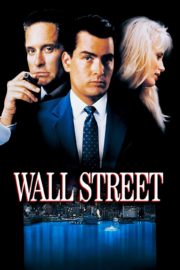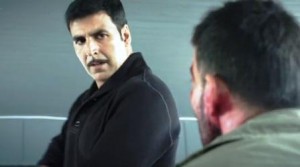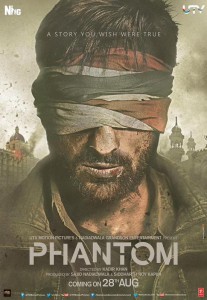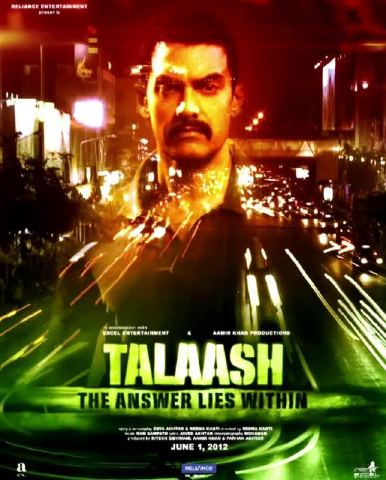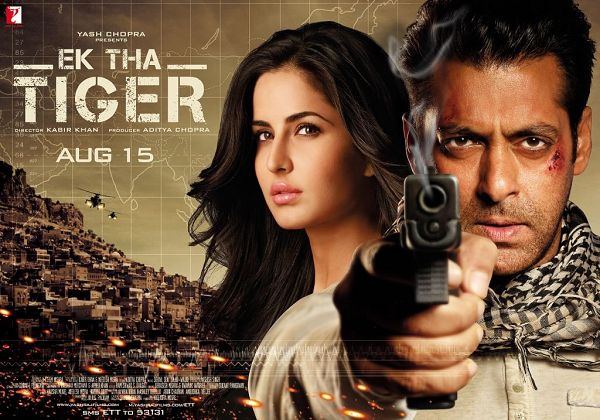 As a police bullet finally found a way into his body, he sat down and looked around. The desolate valleys of Chambal dead in the dark night magically transformed into the spirited galleries of the sports stadium, where many summers back he had run his way to national glory.
As a police bullet finally found a way into his body, he sat down and looked around. The desolate valleys of Chambal dead in the dark night magically transformed into the spirited galleries of the sports stadium, where many summers back he had run his way to national glory.
He hadn’t surrendered. He had finished the race of life he had started, because, in his own words, whether you are ahead or not, every race has to be completed. It’s another thing that it wasn’t the finishing line Paan Singh Tomar had once imagined lunging at.
Digging out the untold story of the steeplechase champion in the 1950s and ’60s from a village in Madhya Pradesh, writer-director Tigmanshu Dhulia has scripted on celluloid the tragedy of many an unsung sports hero in our country.
As the names of a few of those champions fade in and out in the closing credits of the film, you realise that it has always been us who have let down our sporting heroes, and not the other way round. Barring the game which starts with a ‘c’ and ends with a ‘t’, of course.
Particularly heartbreaking is the tale of Paan Singh, who leap over national records, almost at will, and then was pushed to pick up the rifle. Not as a member of the army in war — because sportsmen are safeguarded from bloodshed on the battlefield! — but as a rebel with a cause: his piece of land.
Since Paan Singh is no Gandhi or Netaji, Dhulia and his team take the liberty of playing with the little details that make the biopic even more heartwrenching and ironic. Like his getting into athletics in the first place. As a young inductee in the army, Paan Singh didn’t get as many rotis as he would have liked for lunch. So he decided to get into sports — not for some overcooked dream, but for his empty stomach. “Sports mein khaane peene ki koi pabandi nahin.” And as a test, he ran what seemed like a four-minute-mile, before a slab of ice-cream could melt!
He would go on to strike gold at the 1958 National Games in the steeplechase category and continue to run fast, faster, fastest right till the International Defence Athletic Meet in 1967.
But it was only when he bamboozled the police of three states did Paan Singh Tomar become a known name. “Kabhi country ke vaaste inaam laata tha; ab uske sar pe inaam hai.”
In Dhulia’s interpretation, Paan had no option. His cousin had usurped his piece of land and, in the feud that followed, even hit his mother. The collector first and then the cops refused any kind of help. For a man whose motto in life even on the running tracks was “gaali ke jawaab mein goli chal jaati hai”, he just had to turn baaghi and settle the score.
And even after the revenge happened, Paan couldn’t let go of his gang and go back to athletics, as a coach to the young kids. Why? “Bihad mein dushman khatam ho jaate hain, dushmani nahin.” That dushmani would bring the curtains down on a career which should have run on a different track altogether.
If Dhulia sparkles off screen, Irrfan is simply incredible as the helpless runner-turned-rebel. For an actor whose career is punctuated with one sparkling performance after another, Paan Singh Tomar is right up there with Rannvijay Singh (Haasil), Monty (Life in a… Metro) and Ashoke Ganguli (The Namesake).
But perhaps because of the kind of message this film sends across and the sheer volume of his role, Irrfan’s Paan may be the most important character of his career till now. Getting into the torn rubber shoes of a hungry athlete and then into the dusty khakees of a bloodthirsty Chambal dacoit, the actor takes you along on the ride and never lets you go.
There are hurdles and ditches — particularly in the slightly directionless second half — but you want to finish the race with Paan. And that’s because of Irrfan.
The supporting cast — Vipin Sharma, Zakir Hussain, Nawazuddin Siddiqui, Rajendra Gupta — fit their roles to the tee. And as Paan’s wife, Mahie Gill brings the right mix of romance and resentment to deliver a beautifully etched love track.
In one of the film’s many poignant moments, with the kind of pain in his voice that has made Irrfan one of the most sought-after actors on both sides of the Pacific, Paan Singh asks the journalist who is interviewing him: “Khaali khiladi rehte, toh itna zokham leke humein milne aate?”
Take the zokham and go meet Paan. Maybe it will bring out the baaghi in you.
Tags: Imran Hasnee Irfan Khan Mahie Gill Nawazuddin Siddiqui Paan Singh Tomar Pratim D. Gupta Reviews Telegraph Tigmanshu Dhulia Vipin Sharma

